In the ever-evolving world of agriculture, understanding and managing soil health has become paramount. At the forefront of this revolution is the recognition of the importance of organic matter in soil. This blog post delves into the groundbreaking work of Farmonaut, a satellite-based crop health monitoring organization, and their collaboration with Fair Climate Fund to accurately measure and analyze soil organic carbon. We’ll explore how this technology is shaping sustainable farming practices and why organic carbon is crucial for soil health.
🌱 The Significance of Soil Organic Carbon
Soil organic carbon (SOC) is a key indicator of soil health and fertility. It plays a vital role in maintaining soil structure, water retention, and nutrient availability. Understanding the importance of organic matter in soil is crucial for farmers and environmentalists alike.
Soil organic matter, which contains about 58% carbon, is the foundation of healthy, productive soils. It contributes to several essential soil functions:
- Enhances soil structure and stability
- Improves water retention capacity
- Increases nutrient availability for plants
- Supports beneficial soil microorganisms
- Helps in carbon sequestration
The percentage of organic carbon in soil can vary widely, typically ranging from 1% to 10% in mineral soils. However, the optimal level depends on various factors such as soil type, climate, and land use. Increasing soil organic carbon is a key strategy for improving soil health and mitigating climate change.
🛰️ Farmonaut’s Revolutionary Approach
Farmonaut, a cutting-edge satellite-based crop health monitoring organization, has developed an innovative method to measure soil organic carbon remotely. This technology has the potential to revolutionize how we assess and manage soil health on a large scale.
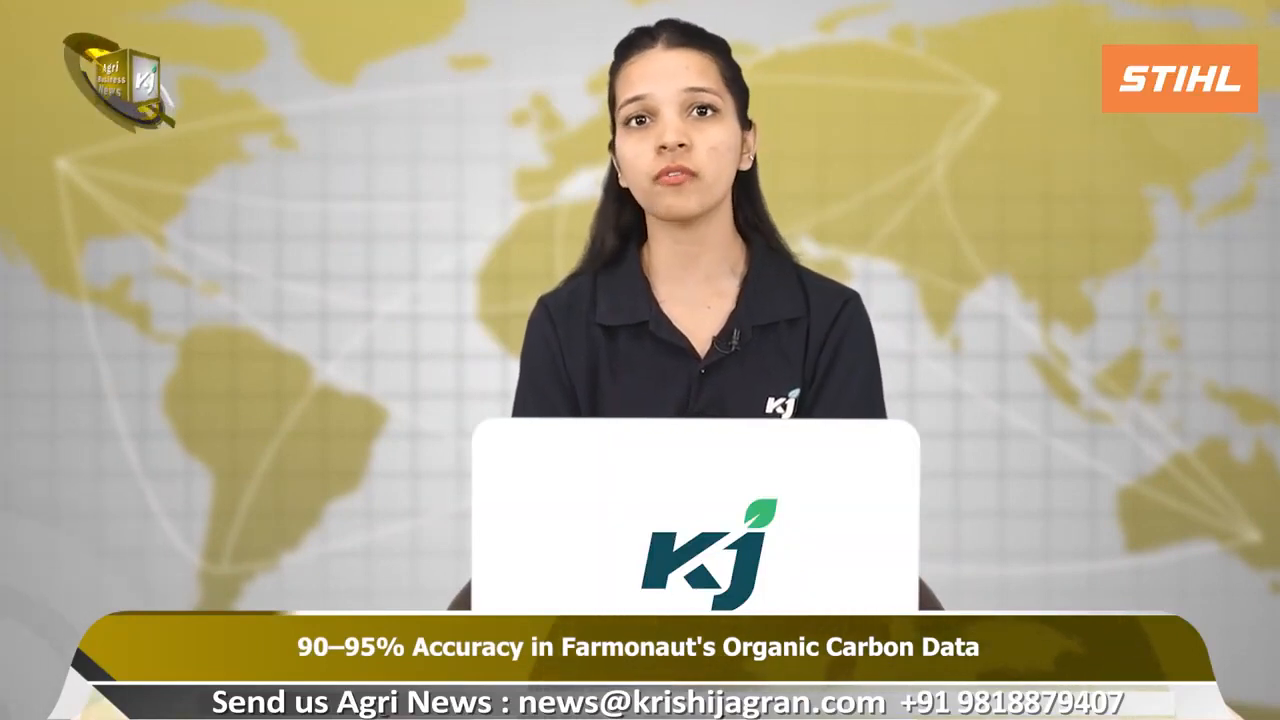
The organization recently provided organic carbon data for farms in Madhya Pradesh and Jammu and Kashmir to Fair Climate Fund. The results were nothing short of remarkable.
Unprecedented Accuracy
The data supplied by Farmonaut has been certified to correlate with ground-based measurements with an astonishing accuracy of 90-95%. This level of precision is a game-changer in the field of remote soil analysis.

Archit Batra, Senior Carbon Business Developer at Fair Climate Fund, stated that this achievement “strengthens our dedication to sustainable agriculture methods.” The implications of this technology are far-reaching, offering new possibilities for efficient and accurate soil management across vast agricultural areas.
🌍 Importance of Organic Matter in Soil: A Deeper Dive
To fully appreciate the significance of Farmonaut’s achievement, it’s crucial to understand the importance of soil organic matter and its impact on agricultural productivity and environmental sustainability.
Soil Structure and Water Retention
Organic matter acts as a binding agent for soil particles, improving soil structure and increasing its ability to retain water. This is particularly important in regions prone to drought or with sandy soils.
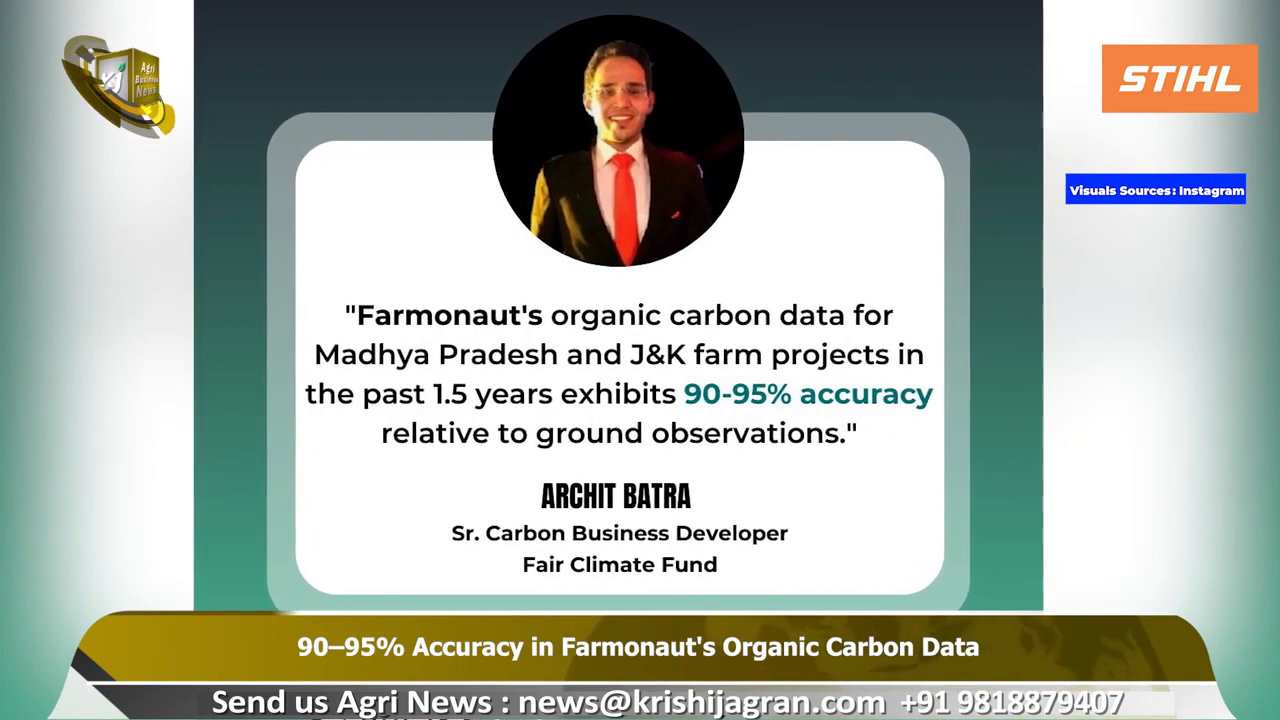
Nutrient Cycling
Soil organic matter is a primary source of nutrients for plants. As it decomposes, it releases essential elements like nitrogen, phosphorus, and sulfur, making them available for plant uptake.
Microbial Activity
A healthy soil ecosystem teems with microorganisms that depend on organic matter for food and habitat. These microbes play crucial roles in nutrient cycling, disease suppression, and overall soil health.
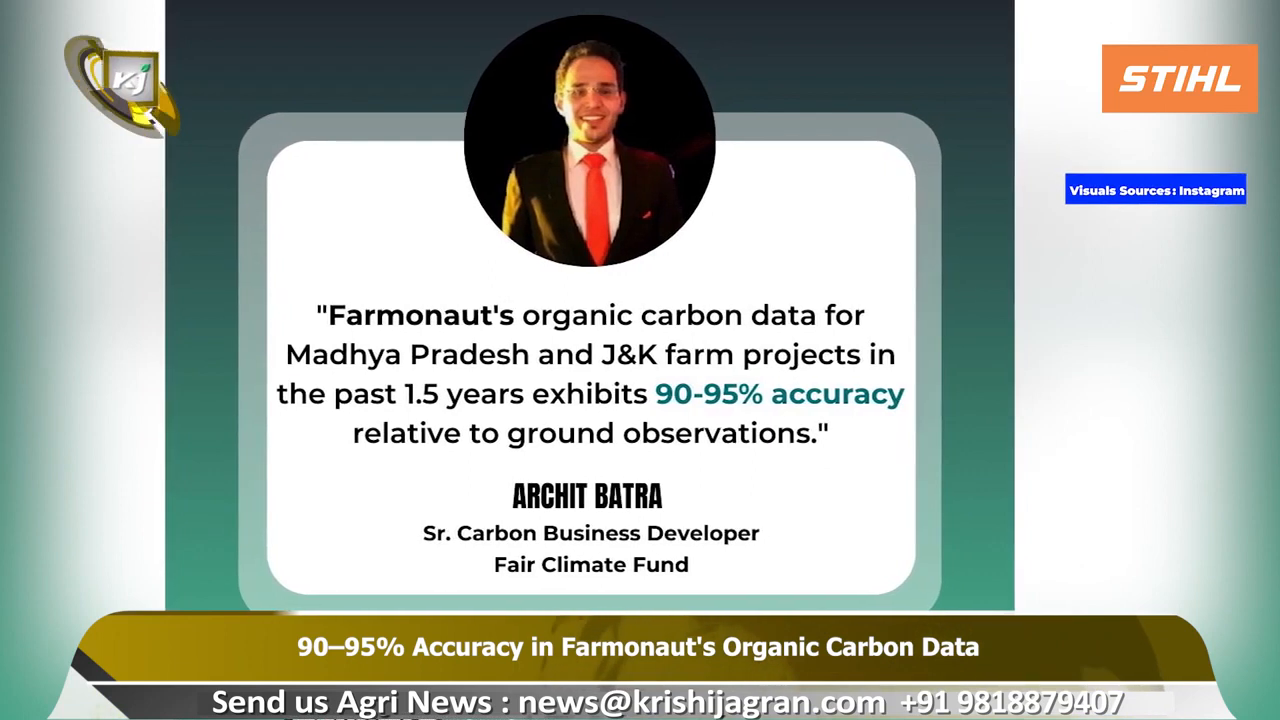
🔬 How to Increase Organic Carbon in Soil
Given the importance of organic matter in soil, farmers and land managers are increasingly focused on strategies to increase soil organic carbon. Here are some effective methods:
- Implement no-till or reduced tillage practices
- Use cover crops to protect and enrich soil
- Rotate crops to improve soil structure
- Apply organic amendments like compost
- Manage crop residues effectively
- Practice agroforestry or silvopasture
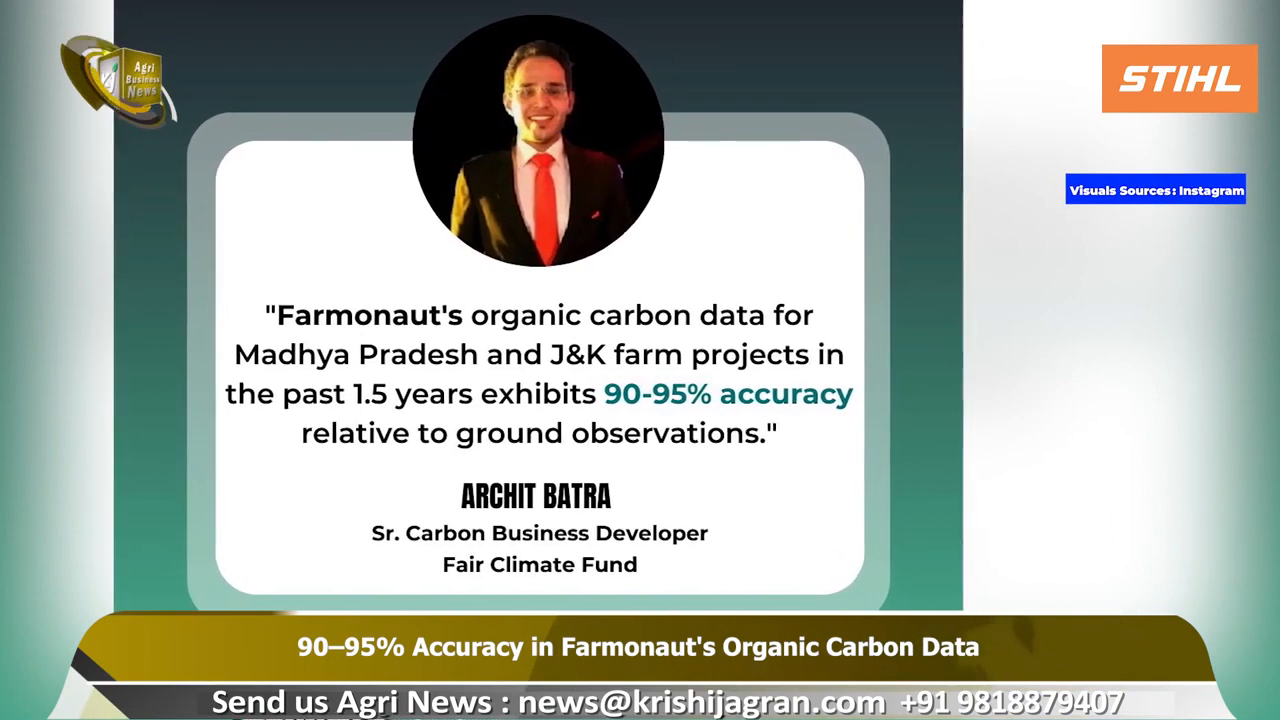
These practices not only help to increase soil organic carbon but also contribute to overall soil health and sustainable agriculture.
📊 The Role of Technology in Soil Management
Farmonaut’s satellite-based technology represents a significant leap forward in our ability to monitor and manage soil health on a large scale. By providing accurate, real-time data on soil organic carbon levels, this technology enables farmers and policymakers to make informed decisions about land management practices.
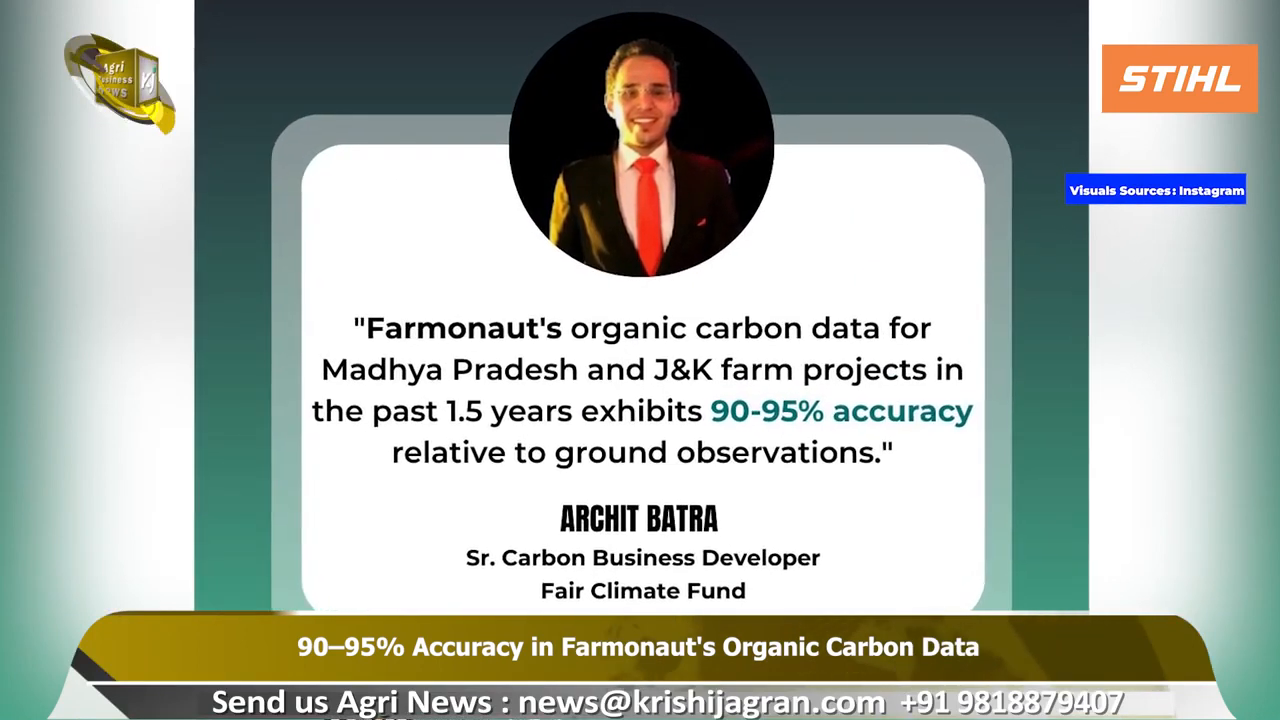
The implications of this technology extend beyond individual farms. It has the potential to inform global efforts to combat climate change through carbon sequestration in soils, a strategy known as “carbon farming.”
🤝 Collaboration for a Sustainable Future
The partnership between Farmonaut and Fair Climate Fund exemplifies the power of collaboration in addressing global challenges. By combining Farmonaut’s innovative technology with Fair Climate Fund’s expertise in sustainable development, they are paving the way for more effective and data-driven approaches to soil management and climate action.
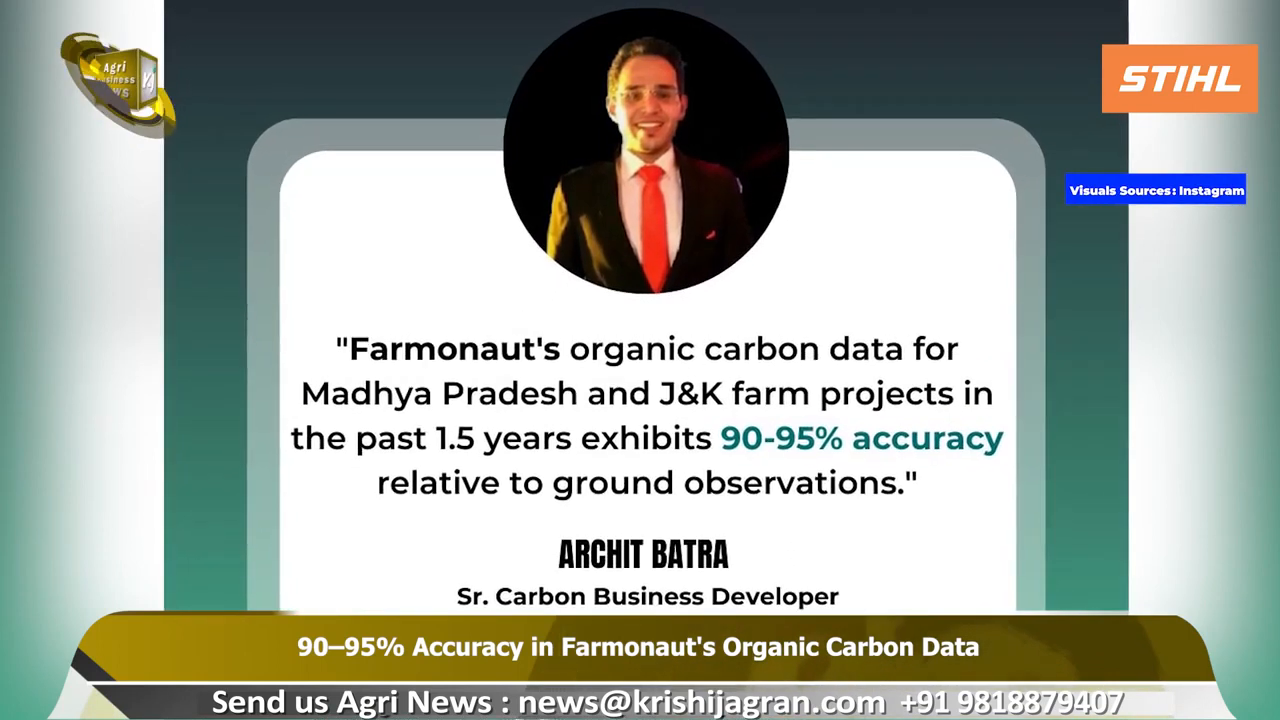
This collaboration underscores the importance of bridging the gap between technology and on-the-ground implementation in the pursuit of sustainable agriculture.
🌟 The Future of Soil Health Management
As we look to the future, the importance of organic matter in soil will only continue to grow. With technologies like Farmonaut’s satellite-based monitoring, we are better equipped than ever to understand and manage our soils for optimal health and productivity.
The ability to accurately measure soil organic carbon on a large scale opens up new possibilities for:
- Targeted soil improvement strategies
- More effective carbon offset programs
- Improved crop yield predictions
- Better-informed policy decisions
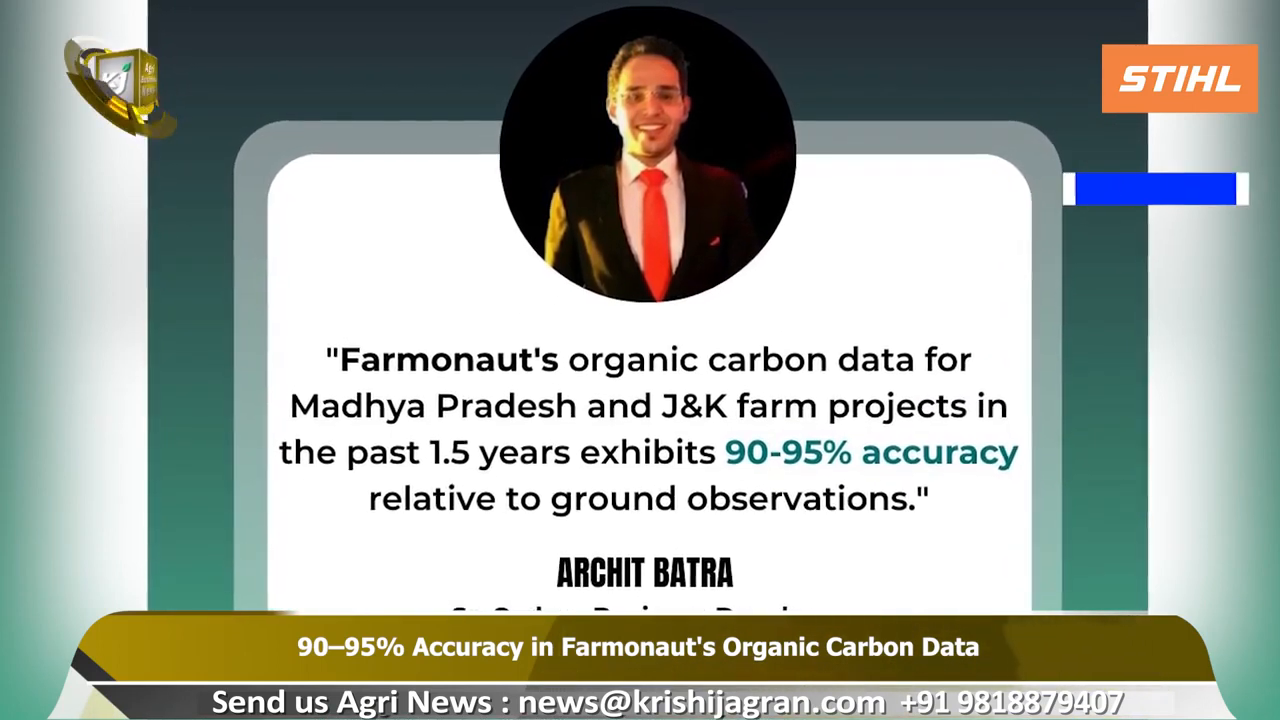
As we continue to face challenges like climate change and food security, innovative approaches to soil management will be crucial in creating a sustainable future for agriculture and our planet.
❓ FAQ: Soil Organic Carbon and Sustainable Agriculture
What is soil organic carbon?
Soil organic carbon refers to the carbon component of organic matter in soil. It’s a key indicator of soil health and plays a crucial role in soil structure, water retention, and nutrient availability.
Why is organic matter important in soil?
Organic matter is essential for soil health as it improves soil structure, increases water-holding capacity, provides nutrients for plants, and supports beneficial soil microorganisms.
How can farmers increase soil organic carbon?
Farmers can increase soil organic carbon through practices such as no-till farming, cover cropping, crop rotation, applying organic amendments, and managing crop residues effectively.
What is the average percentage of organic carbon in soil?
The percentage of organic carbon in soil typically ranges from 1% to 10% in mineral soils, but the optimal level varies depending on soil type, climate, and land use.
How does Farmonaut measure soil organic carbon?
Farmonaut uses satellite-based technology to remotely measure soil organic carbon levels across large areas with high accuracy.
What is the significance of Farmonaut’s 90-95% accuracy in measuring soil organic carbon?
This high level of accuracy allows for more precise soil management strategies and better-informed decision-making in sustainable agriculture practices.
How does increasing soil organic carbon help combat climate change?
Increasing soil organic carbon helps sequester carbon dioxide from the atmosphere, potentially mitigating the effects of climate change.
What is the role of Fair Climate Fund in this project?
Fair Climate Fund collaborated with Farmonaut to verify the accuracy of their satellite-based soil organic carbon measurements, supporting sustainable agriculture initiatives.
As we continue to explore and implement innovative solutions for sustainable agriculture, the importance of organic matter in soil remains a central focus. Technologies like Farmonaut’s satellite-based monitoring system are paving the way for more efficient, data-driven approaches to soil management, ultimately contributing to a healthier planet and more sustainable food production systems.

 The organization recently provided organic carbon data for farms in Madhya Pradesh and Jammu and Kashmir to Fair Climate Fund. The results were nothing short of remarkable.
The organization recently provided organic carbon data for farms in Madhya Pradesh and Jammu and Kashmir to Fair Climate Fund. The results were nothing short of remarkable.
 Archit Batra, Senior Carbon Business Developer at Fair Climate Fund, stated that this achievement “strengthens our dedication to sustainable agriculture methods.” The implications of this technology are far-reaching, offering new possibilities for efficient and accurate soil management across vast agricultural areas.
Archit Batra, Senior Carbon Business Developer at Fair Climate Fund, stated that this achievement “strengthens our dedication to sustainable agriculture methods.” The implications of this technology are far-reaching, offering new possibilities for efficient and accurate soil management across vast agricultural areas.


 These practices not only help to increase soil organic carbon but also contribute to overall soil health and sustainable agriculture.
These practices not only help to increase soil organic carbon but also contribute to overall soil health and sustainable agriculture.
 The implications of this technology extend beyond individual farms. It has the potential to inform global efforts to combat climate change through carbon sequestration in soils, a strategy known as “carbon farming.”
The implications of this technology extend beyond individual farms. It has the potential to inform global efforts to combat climate change through carbon sequestration in soils, a strategy known as “carbon farming.”
 This collaboration underscores the importance of bridging the gap between technology and on-the-ground implementation in the pursuit of sustainable agriculture.
This collaboration underscores the importance of bridging the gap between technology and on-the-ground implementation in the pursuit of sustainable agriculture.
 As we continue to face challenges like climate change and food security, innovative approaches to soil management will be crucial in creating a sustainable future for agriculture and our planet.
As we continue to face challenges like climate change and food security, innovative approaches to soil management will be crucial in creating a sustainable future for agriculture and our planet.